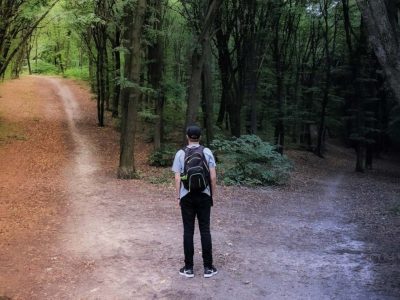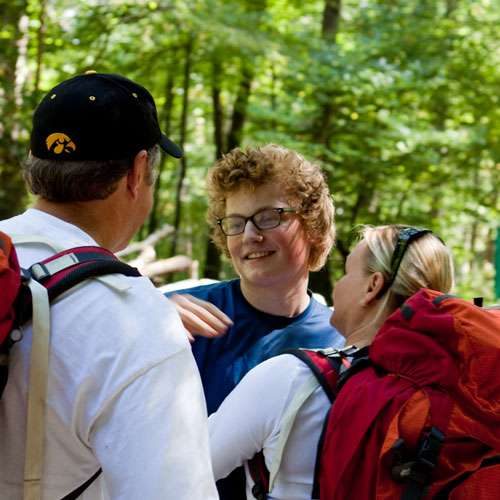Adolescence can be a challenging time for both parents and the teens themselves. As a family, you are transitioning from being involved in every aspect of your child’s life to experiencing your teen pulling away as they yearn for autonomy. This is a natural part of childhood development as teens begin to develop their own opinions and have experiences independently. And parents hope that they have helped their children build the life skills they need to make healthy choices.
We also know that teens will make mistakes, and again, that is an important part of development. But there are some mistakes that are fairly low risk, for example missing an assignment because they chose to spend time with friends over doing their homework, and there are some mistakes that have a higher risk, such as experimenting with substances and substance abuse.
Teens and Substance Abuse
Movies and TV tell us that we should expect teenagers to experiment with alcohol and substances. Even media marketed specifically towards the adolescent crowd depict teens engaging in this behavior. This can skew teens’ image of the reality of substance use and substance abuse.
Some statistics around substance use in teens from the CDC:
- Alcohol, marijuana, and tobacco are substances most commonly used by adolescents.
- By 12th grade, about two-thirds of students have tried alcohol.
- About half of 9th through 12th-grade students reported ever having used marijuana.
- Among 12th graders, close to 2 in 10 reported using prescription medicine without a prescription.
Although it is illegal for people under 21 years of age to drink alcohol, the findings show that people from 12 to 20 years of age consume about one-tenth of all alcohol consumed in the United States. Beyond the legality of substance use, there are also deeper consequences for teens both mentally and physically. The CDC has found that substance abuse can affect the growth and development of teens, especially brain development. These teens years are crucial to brain development. As these substances enter a teen’s brain, they interfere with its normal tasks and can eventually lead to changes in how well it works. The chemicals from substance abuse can even alter the way that the brain responds to stimuli.
Substance abuse can also lead to dangerous risk-taking in teens. Many teens are already taking more risks during this time period, but substance use can lead to lowered inhibitions and weakened critical thinking which can lead to dangerous outcomes. Substance abuse can also contribute to adult health problems such as heart disease, high blood pressure, and sleep disorders.
One of the most common reasons teens experiment with substances is that they view substance use as a fun social activity that has the power to change their mood, which is particularly appealing to teens who struggle with low mood and loss of interest in activities they used to enjoy. Teens are more likely to look at rewards than to consider long-term consequences. For some teens, half of the excitement of sneaking around and chasing an unpredictable high, rather than how they feel when they use substances.
Signs of Substance Abuse In Teens
If you believe that your child is struggling with substance abuse, here are some signs to look for:
- Evidence of drugs and/or drug paraphernalia.
- Behavioral problems and poor grades in school.
- Emotional distancing, isolation, depression, or fatigue.
- Overly influenced by peers.
- Hostility, irritability, or change in the level of cooperation around the house.
- Lying or increased evasiveness about after-school or weekend whereabouts.
- Decrease in interest in personal appearance.
- Physical changes, such as bloodshot eyes, runny nose, frequent sore throats, and rapid weight loss.
- Changes in mood, eating, or sleeping patterns.
- Dizziness and memory problems.
- Unusual odor on breath (alcohol, inhalants, marijuana).
- Widely dilated pupils even in bright light.
- Pinpoint pupils even in dim light.
If you are concerned about your teen’s behaviors, it can feel overwhelming to try to manage those behaviors at home while they are still engaged in the habits and environments that initially led to the substance abuse. These teens can greatly benefit from the support and structure of a clinical setting. But not all teens thrive in a traditional therapy program. Outdoor therapy for teens struggling with substance use introduces teens to healthier social activities and helps them gain a new perspective on the role substances have played in their life.
Why Choose Outdoor Therapy For Substance Use Issues?
There are a number of treatment options for teens struggling with mental health issues and substance abuse issues, but many programs are designed to treat one or the other, rather than the intersection of these issues. According to a recent study, teens who completed an Outdoor Behavioral Therapy program were 25% more likely to maintain lasting changes than teens in other programs. Wilderness therapy looks at teens’ issues holistically and empowers them to be more confident in multiple areas of their lives, rather than just addressing behavioral issues. In an outdoor setting, teens are removed from the familiarity of their routines and find it easier to break the cycle of craving substances, as they are distanced from other triggers associated with substance use.
Positive elements of outdoor behavioral therapy include:
- Extended wilderness experiences allow time for comprehensive assessments and establishing treatment goals
- Active use of participation and responsibility in the therapeutic process
- Group therapy fosters teamwork and social interactions
- Healing natural environments allow for distance from stressors and responsibilities at home
- Adventure activities help teens adapt to positive-stress situations
Teens who are struggling with substance abuse are often not the only ones suffering. In these situations, the family as a whole feels the effects of their teen’s behaviors and choices. One analysis of wilderness therapy studies conducted by St. Catherine University discusses the contribution of wilderness therapy to the stabilization of problem behaviors amongst teens. It also discusses the improvement of family functioning to a normal level. Another topic of discussion is the way in which wilderness therapy supports the development of healthy relationships for teens with past attachments that provoked anxiety and distrust.
When your teen is enrolled with Trails Carolina, they will have a team of professionals working to help them create long-lasting change. This team includes their primary therapist, a family therapist, field instructors, certified teachers, and an equine specialist. Combined, these experts will present your teen with new opportunities and challenges to create a diverse, integrated experience. At the end of the day, this results in a more comprehensive assessment and allows your teen to learn and reinforce positive behaviors across a variety of rewarding activities.
Increased Willingness to Change
One of the strengths of wilderness programs is that they work with teens at different stages of change, including those who are in denial that they need to change. Many teens who use substances struggle to recognize how their substance use has interfered with their academic performance, relationships, and self-esteem. They are more likely to blame external circumstances for their behavior, struggle to take ownership of their problems, and lack the motivation to change.
The goal of wilderness therapy is to empower teens to recognize that they have more control over how they respond to situations. These programs guide teens in gaining self-awareness, taking responsibility, and exploring healthy activities that help them deal with stress. Teens develop meaningful relationships with their peers based on emotional support, shared values, and healthy social activities that protect them from falling back into social circles that revolve around substance use when they transition home.
Many of our students struggle with anxiety, confidence, or transitions. Outdoor activities undoubtedly open a student’s mind towards reflection, self-awareness, and change, but that alone isn’t enough. At Trails Carolina, our wilderness treatment center creates dynamic changes in a structured setting. Our team helps strengthen students’ new skills across the diverse environments of everyday life. We understand that success in a given environment does not guarantee a student’s ability to transition those skills. In order to create lasting change, we need to help your teen become adaptable, which is why we purposely incorporate transitional experiences into the program. Practicing these transitions in a real-time setting helps teens become more confident in using their new skills in any challenges that may arise once they return home.
Trails Carolina Can Help
Trails Carolina is a wilderness therapy program that helps teens ages 10-17 who are struggling with depression, anxiety, and substance abuse. This program uses nature-based, residential therapy to help students gain a new sense of self-awareness, confidence, and independence. The skills they learn throughout the wilderness program offer long-term benefits towards their ability to successfully self-navigate in the real world.
Our Trails Team combines a variety of specialties and environments to develop the most comprehensive assessment possible for your child. By observing your child in different lights, we’re able to learn when they thrive and when they struggle. We also consider your child in the context of family, peers, school, recreation, and self. This provides a deeper understanding of the individual and allows our team to customize your child’s treatment plan in order to yield greater success.
By removing teens from their fast-paced environment into a safe, nurturing, and peaceful environment, they are able to focus on improving and reflecting upon their behavior. Trails Carolina gives students the tools they need to lead happy and healthy lives. We can help your family today!
For more information please call us at 800-975-7303.
Get started today
Contact us today to learn how Trails Carolina can help your family
Trails saved my daughter’s life. Amanda is an amazing human and a brilliant therapist. I am so grateful to her, Science Steve, and the other wonderful people who could reach my daughter at a time when I could not.
Margot Lowman August 2022
Great life changing experience for our son. After becoming addicted to gaming during covid he was very depressed. At Trails he experienced the wilderness, Science Steve, learning survival skills and top notch therapy and support etc… I highly recommend! This gave our son and our family a renewed family bond full of love and excitement about his bright future.
Winnifred Wilson July 2022
Outstanding clinical work and superb staff! There’s a great culture at this company and it shows with how they engage with families/clients.
Kristin Brace June 2022
Discover If Trails Is The Right Program For Your Child
Take our short online assessment and help us better understand how we can help your family.




